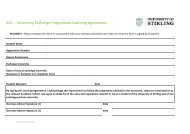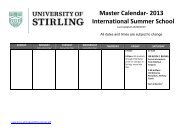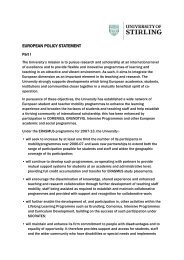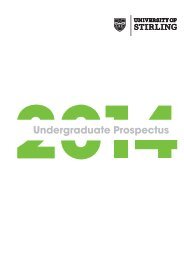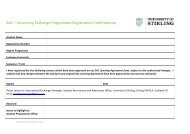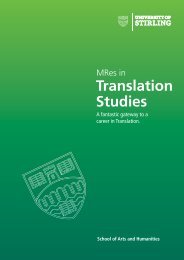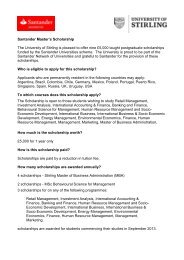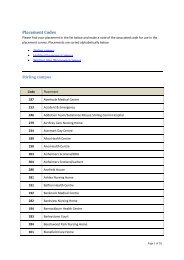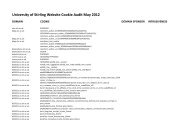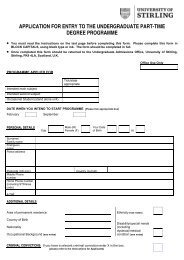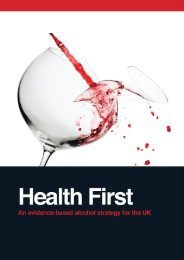Supporting a uK SucceSS Story: The impacT of - Research Councils ...
Supporting a uK SucceSS Story: The impacT of - Research Councils ...
Supporting a uK SucceSS Story: The impacT of - Research Councils ...
Create successful ePaper yourself
Turn your PDF publications into a flip-book with our unique Google optimized e-Paper software.
Fighting fatigue<br />
PhD student Abdulla Alghannam about to<br />
centrifuge some whole-blood so the supernatant<br />
(plasma) can be removed and stored for later<br />
analysis.<br />
<strong>Research</strong>ers at the University <strong>of</strong> Bath led by Dr James<br />
Betts are currently running the latest in a series <strong>of</strong> studies<br />
to better understand the mechanisms <strong>of</strong> fatigue during<br />
exercise. <strong>The</strong>y are particularly keen to look at instances<br />
where repeated bouts <strong>of</strong> demanding exercise are required<br />
without an adequate break for full physical recovery. This<br />
has relevance to intensive periods <strong>of</strong> competition, such as<br />
the Olympic Games, but also the ongoing daily training <strong>of</strong><br />
both athletes and recreational exercisers alike. <strong>The</strong> team are<br />
examining the differences in fatigue experienced between<br />
an initial bout <strong>of</strong> exercise and subsequent repeated<br />
bouts, while simultaneously evaluating the impact <strong>of</strong><br />
various nutritional strategies on this relationship. <strong>The</strong> work<br />
combines a broad range <strong>of</strong> contemporary measurement<br />
techniques from analysis <strong>of</strong> fuel levels with human muscle<br />
samples, to measuring the concentration <strong>of</strong> key hormones<br />
in blood, to monitoring changes in central nervous system<br />
activation. <strong>The</strong> findings will contribute to our fundamental<br />
understanding <strong>of</strong> human physiology, but with clear<br />
application to the development <strong>of</strong> evidence-based nutrition<br />
and training programmes for athletes in the lead-up to<br />
the Olympic and Paralympic Games. Another group <strong>of</strong><br />
researchers at the University <strong>of</strong> Brighton are unraveling the<br />
mystery <strong>of</strong> how the brain determines how much exercise<br />
we are capable <strong>of</strong>.<br />
“<strong>The</strong> work combines a broad range <strong>of</strong> contemporary<br />
measurement techniques from analysis <strong>of</strong> fuel levels with<br />
human muscle samples, to measuring the concentration <strong>of</strong> key<br />
hormones in blood, to monitoring changes in central nervous<br />
system activation.”<br />
Although the limits to human performance have been<br />
explored for decades, only within the last 15 years has<br />
the study <strong>of</strong> the brain’s involvement in exercise tolerance<br />
become debated by sport and exercise scientists. Originally,<br />
researchers assumed that fatigue was caused because<br />
muscles couldn’t operate effectively as a consequence<br />
<strong>of</strong> prolonged or intense physical exertion. However, the<br />
introduction <strong>of</strong> techniques such as “transcranial magnetic<br />
stimulation”, a non-invasive method that assesses the<br />
brain’s control <strong>of</strong> muscles, has allowed researchers to<br />
explore just how influential the brain is in muscle fatigue.<br />
<strong>The</strong> researchers hope that this research could lead to new<br />
training methods and ultimately improve the performance<br />
<strong>of</strong> athletes.<br />
26<br />
SECTION two : Health and Wellbeing



